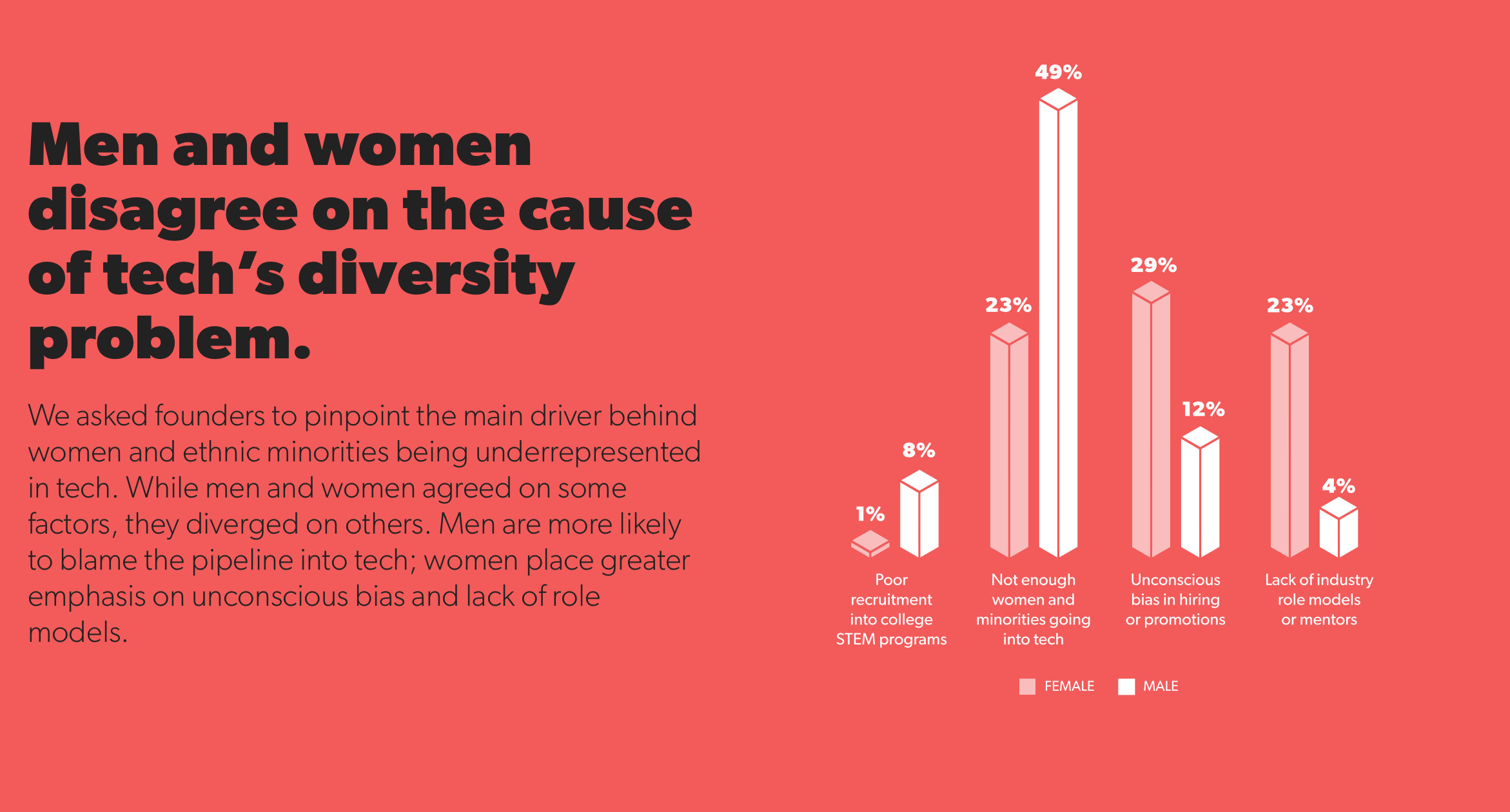There is a well-documented problem with diversity in the male-dominated tech world. Who’s to blame? A new survey of some of the most powerful future Silicon Valley millionaires reveals that men, shockingly, want to blame everyone and everything but the tech industry itself.
Silicon Valley: HBO
San Francisco venture capital firm First Round Capital polled over 700 start up founders and CEOs for its second “State of Startups” report, asking about the characteristics of their fledgling companies, including several questions about the pervasive diversity problem in tech.
The demographics reported by the respondents reveal that these companies are a striking microcosm of the industry as a whole: 83 per cent of respondents were male and 63 per cent run companies that are “mostly male”. (No racial or ethnic data was reported.) Just 14 per cent of the companies have formal plans and policies for addressing diversity and inclusion. And nearly one-third of respondents say they haven’t discussed diversity in the past year.
None of that is surprising given what we know about diversity in startups. The most illuminating bit of the study concerns the male perspective about why there’s a diversity problem. The largest number of men (49 per cent) say there aren’t enough women or minorities in tech because they’re simply choosing not to go into the field. Much smaller numbers reported believing that racism, lack of industry support or unconscious biases were to blame.

First Round, “State of Startups” (2016)
This idea that there is a lack of women and people of colour entering the technology industry is often referred to as the “pipeline problem”. It’s a pernicious myth that has stuck around primarily because it’s an easy way of deflecting blame onto a lacklustre education system, onto unsuccessful recruitment initiatives, onto people of colour and women — onto everything but the insular culture of the industry itself.
Over the winter, Maxine Williams, Facebook’s global director of diversity, released a statement accompanying the company’s dismal diversity numbers: “Appropriate representation in technology… will depend upon more people having the opportunity to gain necessary skills through the public education system.” The post goes on to talk about how often women and minorities rarely pursue computer sciences in school, completely ignoring how Facebook isn’t doing enough to change itself or the culture its embedded in. The reason that just one per cent of Facebook’s technical workforce is black has nothing to do with Facebook. The problem is public education.
In an interview with The New Yorker, black, female engineer Kaya Thomas was incredulous: “Are you kidding me? There’s no talent? Who am I? Am I invisible? Do I not exist?” Thomas went on to say that jobs at big name companies like Facebook, Google, Microsoft and so on go to those with a wealth of connections, networking access or a pedigreed education — which all require wealth, connection and networking access. Because companies specifically target recent graduates, many are in effect replicating the same biases of the education system. The pipeline is stacked against first-timers, so why should they be blamed when they can’t make it in through?
Not recognising the pipeline myth proactively only leads to a more crystallised, insular culture. As First Round’s disporting survey reveals, men in these startups, again mostly surrounded by other men, don’t seem to recognise that.
[First Round Capital via Recode]
